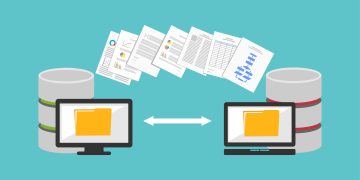Cloud backup, also known as online backup or remote backup, is a strategy for sending a copy of a physical or virtual file or database to a secondary, off-site location for preservation in case of equipment failure or catastrophe. It is an alternative to conventional backup. It offers several facilities such as creating, editing, managing, and restoring the cloud backup. Businesses opt to back up to the cloud to keep files and data readily available in the event of a system failure, outage or natural disaster. Cloud backup is a service in which the data and applications on a business’s servers are backed up and stored on a remote server. The purpose of the backup is to create a copy of data that can be recovered when required.
The most common backup types are a full backup, incremental backup and differential backup. Other backup types include synthetic full backups and mirroring. The concept of cloud backup is based on the storage of data in a server-based network. It helps restore files quickly if they become corrupt or lost. For example, one might lose a critical file when computer gets infected with a virus, or suffer from a hardware failure. In these cases, cloud backup can be only option. One can rest assured that the data is protected from these situations. In addition to backing up files, cloud backup helps recover vital information if the user lose their computer. In addition to backing up data, a cloud backup service often ships a complete storage array.
Latest report available at Coherent Market Insights indicates thatCloud Backup Market to Generate a Revenue of US$ 6367 Million by 2025.
In such cases, the customer can easily hook up to servers and restore data. However, restoring large amounts of data can be time-consuming. With a cloud backup service, user don’t have to worry about escalating costs. They can reduce the amount of data back up to the cloud or send dormant data to archive. Another great benefit of cloud backup is that many management tasks are handled by the service provider. A cloud backup service will store files on its servers for a specified period of time. Then, when the user needs them, they can download a cloud backup to a PC and choose the folders they want to back up. It does not take much effort to keep files backed up. It will also automatically backup new files as they are created.
Cloud backup stores valuable data in a remote location. This protects data from the variety of disasters, including accidental deletion, computer viruses, and hard drive failure. Moreover, an online backup keep backup copies of the data in a highly secure environment. These benefits make online backup a valuable tool for securing a data. Cloud backup enables organization to send a copy of cloud data to another location so that if data is compromised, they can restore information, ensure business continuity, and defend against devastating IT crises. Furthermore, loud backup securely backs up all data and keeps it safe, ensuring easy restores and business continuity, helping users store files, sync, and share with other devices.
Cloud backup is less expensive than maintaining an on-premises backup system. Organization does not need to purchase or maintain hardware and software, nor worry about getting approval for a capital purchase. It is uniquely suited to address server data protection.
















